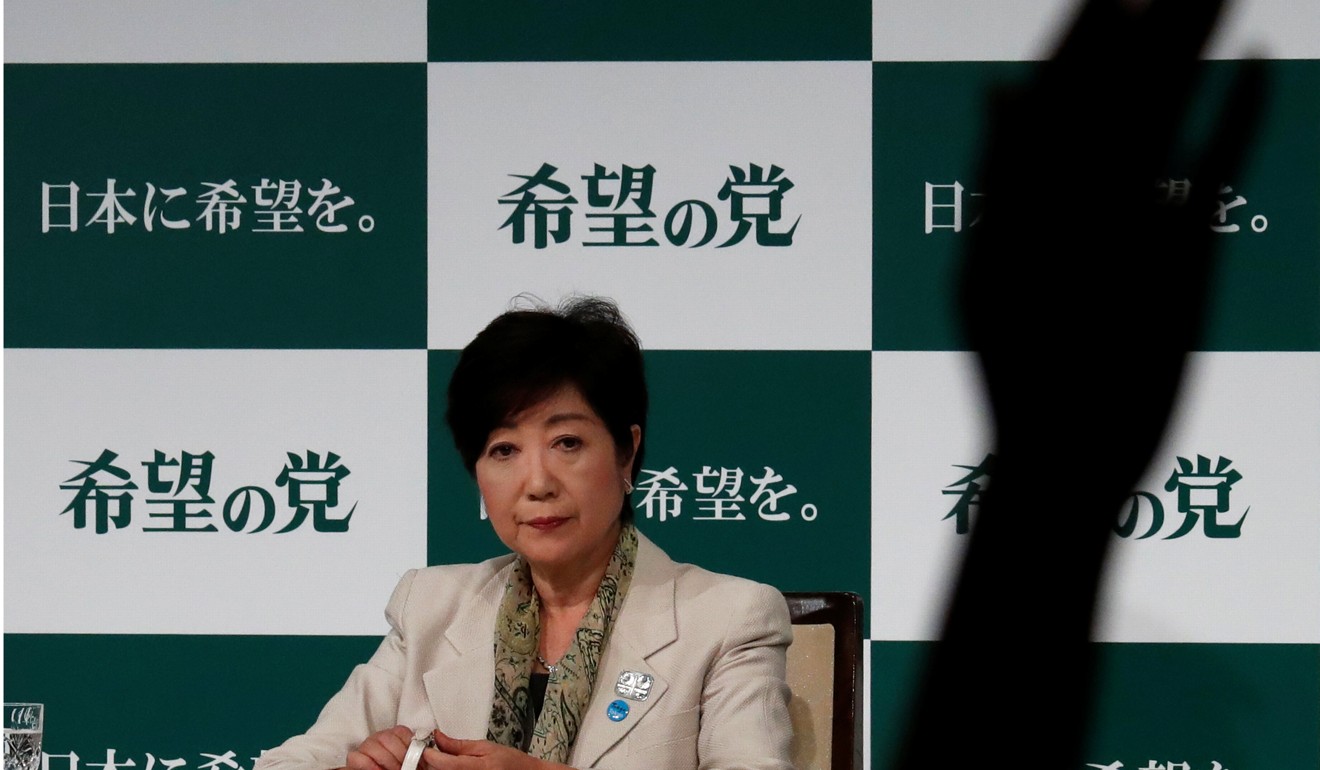
Abe seeks Party of Hope's support for proposed constitutional revision
He said his Liberal Democratic Party will seek to cooperate with other parties on proposing a first-ever reform to the country’s 70-year-old Constitution
Japan’s Prime Minister Shinzo Abe said on Friday he wants to gain the support of parties including the Party of Hope, led by Tokyo Governor Yuriko Koike, on amending the Constitution after the October 22 lower house election.
Ahead of the start of official campaigning on Tuesday, Abe said his Liberal Democratic Party (LDP) will seek to cooperate broadly with other parties on proposing a first-ever reform to the 70-year-old Constitution.
“While deepening the debate within our party, we want to cooperate with any other party,” Abe said.
In its election platform released on Monday, the LDP said it will aim to make the amendment to the Constitution “on the basis of sufficient debate inside and outside the party” of four specific points.
These points include the question of adding specific mention of the status of the Self-Defence Forces. The SDF is currently governed by its own law but is not referenced in the Constitution, Article 9 of which requires Japan to renounce war and the maintenance of “war potential”.

Also on Friday, Koike’s Party of Hope released its manifesto, calling for debate on any constitutional amendments, with Koike saying Article 9 should be included in the discussion.
Abe said even if the LDP were to maintain a majority of seats in the lower house, this would not mean the public has given it a mandate for its views on constitutional reform. He said each party’s position will need to be put through debate in constitutional commissions in both houses of the Diet.
In May, he called for the acceleration of debate on an amendment so that, if approved by the people, it could come into force in 2020.
I do not know what they are trying to assert ... We cannot bring economic policies or diplomacy to a standstill
“I did express a certain target for the schedule ... but what we hope for is first to deepen national debate on the Constitution,” he said.
Koike’s Party of Hope, founded last week, aims to challenge the ruling coalition of the LDP and Komeito party on a “reform conservative” platform.
One area where the parties differ is on a planned increase in Japan’s consumption tax from 8 to 10 per cent in October 2019.
While the LDP wants to go ahead with the move, the Abe administration’s top spokesman, Chief Cabinet Secretary Yoshihide Suga, said the hike would be deferred if the economy deteriorates to the level it was at before Abe returned to power in December 2012.
The Party of Hope says it would freeze the hike.
Abe, critical of the new party’s tax pledge, said: “I do not know what they are trying to assert.
“We cannot bring economic policies or diplomacy to a standstill.”
Since establishing her party last week, Koike has repeatedly denied that she might quit her job to run in the lower house election. Japanese law requires prime ministers to be lawmakers, and by convention, they need to be in the lower, more powerful house.
“I think she herself will decide, and the voters will judge her conduct,” Abe said.
Abe voiced scepticism about the rapid reorganisation of opposition parties in the past two weeks, saying new party “booms” in previous decades had “sent politics into [a state of] confusion and caused the economy to stall.”
“Rather than having [our campaign] end in temporary [political] theatre, we will keep doing what’s important until the very end and achieve results, and I think that’s what voters are looking for,” he said.
On the economy, Abe said he wants to “spread the trend of raising salaries far and wide throughout Japan”, and help “the regions maintain their energy and carve out a future”.
Abe reiterated that he dissolved the House of Representatives on September 28 for the election partly to renew public support for his government’s “strong diplomacy” policy on North Korea.
At the same time, he acknowledged the election campaign will raise further questions about two scandals that dealt a heavy blow to his and his cabinet’s approval ratings earlier this year.
He and other officials were accused of involvement in arranging special treatment for education projects in western Japan led by acquaintances of the prime minister.
“If [the public] has something further to point out, I will carefully explain [myself],” Abe said.

